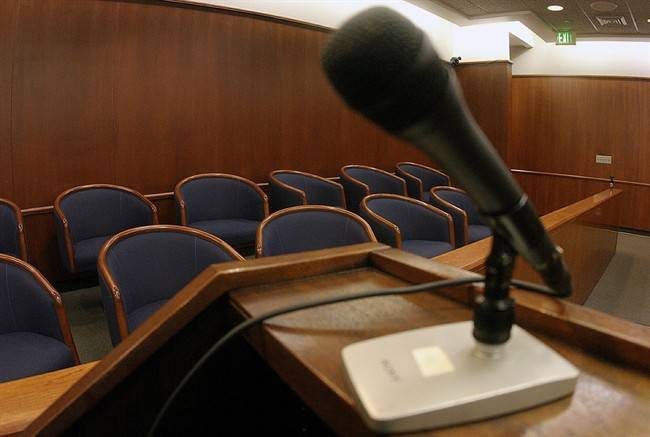TORONTO – Ontario’s Attorney General Ministry scrambled to come up with an action plan last fall after a journalist identified errors in long-used juror eligibility forms sent to hundreds of thousands of people in the province, according to newly released records.

The heavily censored documents show the issue generated urgent requests for information – some from the most senior officials in the ministry – resulting in hundreds of pages of emails, telephone conversations, meetings and conference calls.
Among the information sought by top officials was which potential jurors might be subject to a criminal records check, what the Criminal Code actually states, and what it would cost to mail out revised questionnaires.
“Can you email me what the Juries Act says?” states one message.
“Could you please pull the stats on the convictions?” states another. “Urgent of course.”
READ MORE: Aboriginal jury numbers not grounds for overturning conviction: Supreme Court

Get breaking National news
The scramble that lasted for days was sparked last fall when The Canadian Press discovered that instructions accompanying standard eligibility questionnaires wrongly indicated that people convicted of three offences – impersonating a peace officer, committing an indecent act, or making indecent or repeated telephone calls – are allowed on juries.
- Hedley frontman Jacob Hoggard enters not-guilty plea at Ontario sexual assault trial
- Controversial law designed to free up Ontario hospital beds to be tested in court
- Bonnie Crombie takes aim at Ontario premier in campaign-style speech at Liberal gathering
- Ontario man facing murder charge in shooting death of older brother
About 450 people on average are convicted each year of those offences, according to court figures obtained by the ministry.
When told about the error, several prominent lawyers warned the problem could undermine the integrity of the justice system because of the potential for ineligible people to find their way onto panels deciding cases.
The documents obtained under Freedom of Information laws show the ministry – once it had begun to come to grips with the problem considered two options: Reprinting and mailing 560,000 revised questionnaires to all potential jurors at a total cost of $746,000; or drafting and inserting a new “important notice” into letters sent only to those 170,000 people actually summoned for jury duty at a cost of about $12,000.
The latter option was chosen by default because the Oct. 31 deadline for mailing out the questionnaires was looming while the bureaucrats were still figuring out what to do. Work began immediately on drafting the insert for those summoned for jury duty – as did ministry messaging aimed at downplaying the situation.
Articles about the problem prompted questions from opposition politician Randy Hillier, who wrote Attorney General Madeleine Meilleur about the forms he said had left the justice system “exposed to an unnecessary vulnerability” and cast “somewhat of a shadow” over part of the system, the records show.
In response, Meilleur pointed out the questionnaire is a “legislated document” that requires changes in regulations to amend. She said the ministry was in the process of making the needed changes ahead of this year’s mass mail-out.
Meilleur also said those summoned for jury duty would, in the interim, receive the insert, which draws attention to the three wrongly identified offences on the questionnaire and asks anyone convicted of them to call the provincial jury centre immediately.
The faulty form remains on the ministry website with no indication that it has the eligibility error.







Comments